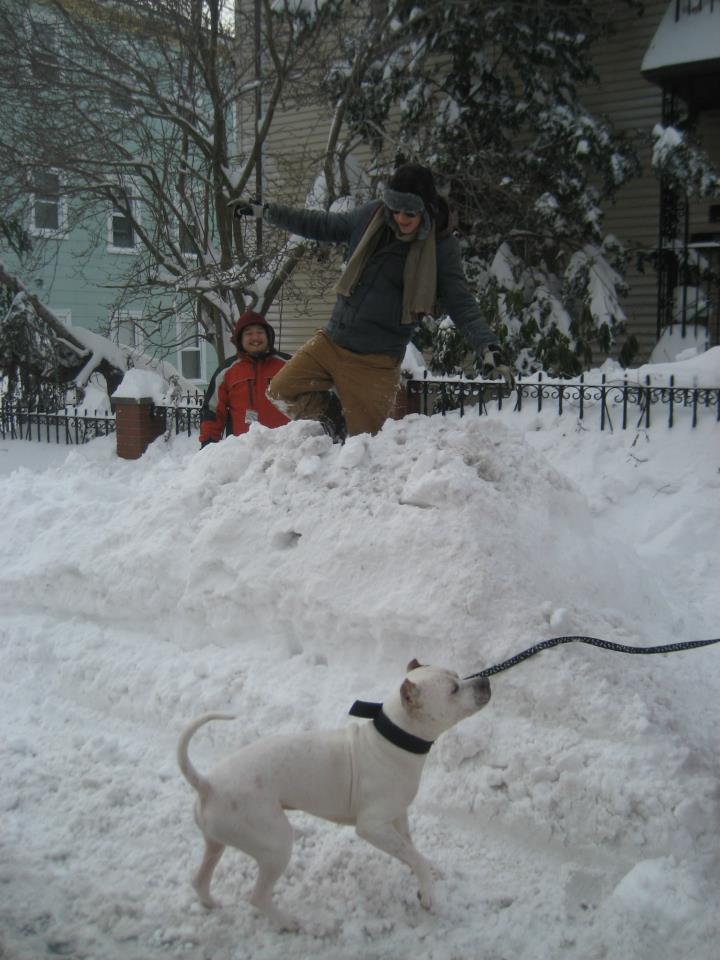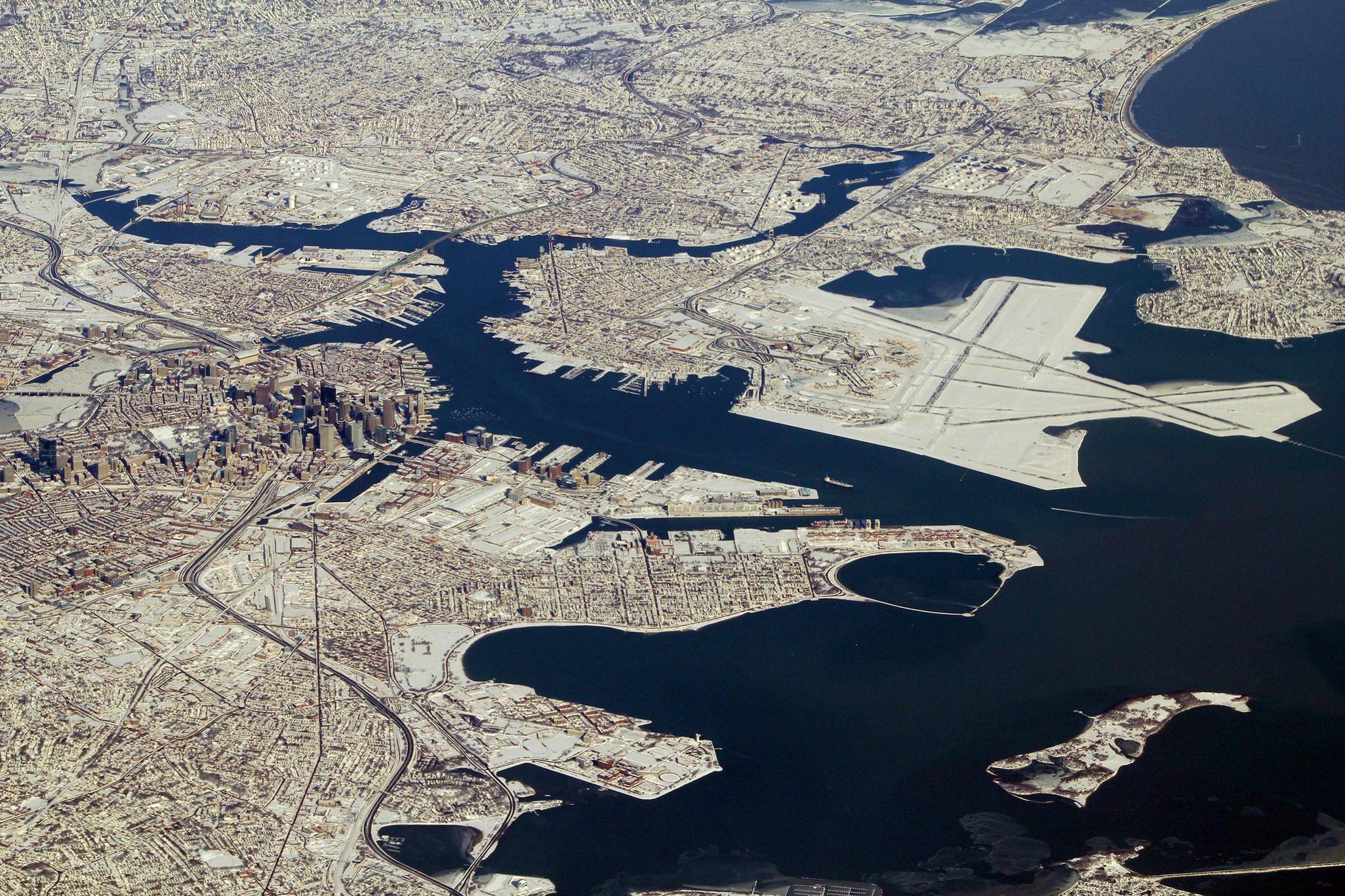
To borrow a phrase, somebody "modded" the environment code last weekend. Reality had been messed with. On Wednesday, everything was normal. When I woke up on Saturday though, I slung open the blinds to see the settings had been updated:
Friction: VERY LOW
Snow levels: HIGH
Professional obligations: LOW
Vehicle traffic: FALSE
Age at heart: 10-12
grumpiness: Override?value=1
That brought the total snowfall in Boston to: 21.8"
In Vermont, the local colloquialism for snowing very hard is "puking," usually with the 'g' hanging off the end for just a moment before being swept away by more glottal stops. Yes, it was straight puking out there for a solid 12 hours in the greater Boston area last weekend, a storm that the Weather Channel called Nemo, and everybody else had to follow their marketing ploy, because the name snapped up so much momentum after its intended, and adorable, trending on Twitter. Anybody that dislikes giving the blizzards goofy names has a bright spot missing from their heart. Don't be mad because you missed the boat on the lucrative storm-naming trend of 2013. Let the Weather Channel have this one. They've . . . they're just going through some shit right now.
They do the best when the weather is bad. Their average viewer's age is 97.
I live in a neighborhood with a lot of students, and young professionals, and twenty-somethings, and Millenials. Whatever you'd like to call us, that's fine.
I hunkered at a friend's apartment to keep myself from getting cabin fever, which is worse than hurricane-fever, but not as bad as space-madness. His place is within walking distance, thus not violating the modified traffic code mentioned above (Massachusetts had a state-wide driving ban for about 36 hours). Things were in a sugar-coated state, and that's a two-pronged metaphor -- everything was socked in by the snow, and every face I passed was turbocharged by this weird, reprogrammed world. It was the friendliest natural disaster ever, and there wasn't a damn thing you could do about it. People had to deal with this programming override, and at first, nobody knew what they should do. You couldn't travel too far. There was no reason to dig your car out, it's not like you could drive anywhere. There is no work. There is no school. The best you could do was just get out there and experience the otherworldy event.
But, aha, just because the physical world is drawn to a halt, we haven't forgotten ourselves entirely. We live an age of social media and we are children again. Let the one-upsmanship commence!
We jumped snow banks. We climbed on cars. We took videos and pictures. My friend and his roommates checked news feeds and rattled off where they were and what they were seeing, or doing, or jumping off of.
It was the return of bad ideas. I miss those.
"Yeah, you're welcome," said the blizzard.
Two things surprised me:
1. Nothing has happened unless it has been posted somewhere.
There's a video of me diving through a snow drift. I don't think it's online anywhere. I did it. You'll have to believe me.
2. More time is spent reading about what other people are doing than trying to parkour over a dog from a railing into a snow bank.
Even when given a special canvas to fuck up in a contained physical environment, a lot of time was spent studying the social media posts left by others.

Say what you will, we're breeding an army of volunteer-historians. We're quite good at record-keeping. We're even doing it for free, so, again, you're welcome. It was lucky that there wasn't any major damage in Boston. No snow plow collisions. No marauding gangs of leather-clad snowmobilers pillaging around Cambridge, hunting people for their stores of alcohol, bread, and milk.
It's interesting to consider that we're becoming the primary sources for history. It's even more interesting to consider if the information being pixelized is truly democratized. Of course, there are still officially-released photos. There are the ones posted in slideshows on The New York Times or boston.com -- but a majority of them were submissions via Instagram or Twitter.
#historybooks
Do they even still put history in books? Until there are government-subsidized Kindles in the hands of every kid in America, yeah, we do. (Can somebody do the math on that? It would be fascinating to see.)
As the day died down and we switched over to the hot chocolate and peppermint schnapps to play some cards, I'm becoming more and more convinced that we are going to be challenged by a bulk of information some day. Everybody is contributing. Are we absorbing the information? Are we divided in our focus? Are we living in the eventual past, padding our soon-to-be presence, only momentarily static? It's all mixing together like so much alcohol and chocolate.
Are we built to digest such a thing?
-- @Alex Crumb (originally published 2/13/13)

